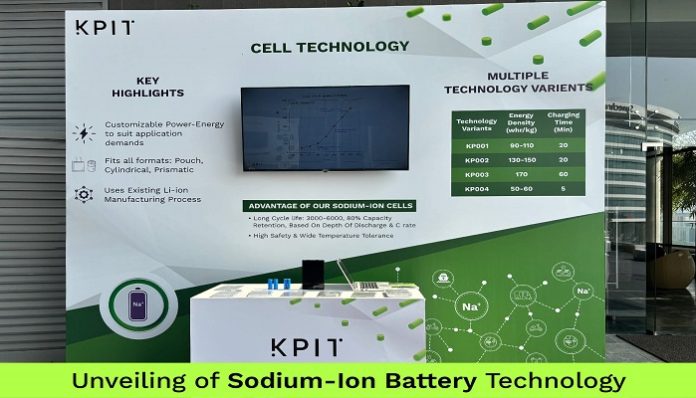KPIT Technologies has developed the Sodium-ion battery technology that not only promises to address import dependency on core battery materials but also opens up various applications across different sectors.
The use cases for electric vehicles, particularly two and three-wheelers, as well as commercial vehicles, highlight the potential for Sodium-ion batteries to contribute to the growth of the electric mobility sector. Additionally, its applications in stationary deployments, such as UPS backups and grid storage, suggest versatility and the ability to cater to a range of energy storage needs.
This development comes from a fruitful collaboration between KPIT Technologies and the Indian Institute of Science Education and Research (IISER), Pune, and underscores the importance of industry-academia partnerships in advancing technological solutions. The contributions of the IISER Pune team in material synthesis, characterization, and battery testing showcase the collaborative effort required to bring such innovative technologies to fruition.
“Sustainability is at the heart of KPIT’s vision. We are working on multiple technologies to reimagine mobility and accelerate the push towards cleaner transportation. As the electric mobility ecosystem matured, we were cognizant of having alternate battery technologies and localizing the storage value chain. Our Sodium-ion battery technology, completely reliant on Earth’s abundant raw materials, is another testament to KPIT’s commitment towards the sustainable mobility ecosystem. We look forward to partnering with manufacturing companies to commercialize this technology globally,” said Ravi Pandit, Co-founder and Chairman of KPIT Technologies.








